We all know that health is the real resource of the human body. A person tries to eat a balanced diet to be healthy. At present, most of the food we eat made in an unhealthy process. High-quality pesticides are using in this to make good crops so that a lot of food grains are available for less land. But these high-quality pesticides further reduce the quality of food and make the human body more unhealthy than healthy. At present, every person checks the health of any food such as raw vegetables, fruits, etc. before taking it. As a result, people are refraining from consuming pesticide-mixed foods despite producing more crops.
Agricultural scientists around the world are constantly trying to improve this food production process through natural or biological processes. Organic farming is particularly significant in this process. It is especially beneficial to the human body as it preserves the resources of the environment. Everyone in advanced agricultural technology is currently doing special research on this farming. You can start this organic farming by thinking about the future.
Today I will try to explain to you in writing what organic farming really is and its future plans. The subject discussed in brief below.
#What is Organic Farming?
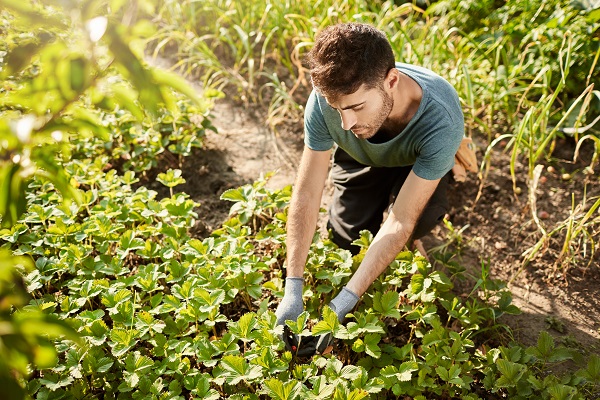
We are all showing quite an interest in social awareness. At the same time, we wish everyone good health. As a result, this farming can be planned to ensure that the food grains produced are balanced. Now the question is what is organic farming. Many people know more or less about this farming. However, I hope everyone will benefit if they know the matter again. So let’s find out what is organic farming.
Organic farming is agriculture where the whole biological process is an easy way to increase the quality of the crop without harming the environment. This farming uses entirely biological processes such as animal waste, farm organic waste, and vegetable waste to increase soil productivity. In this process, all the processes of pest control in food grains, the supply of nutrients to plants, weed control all completed in a natural way.
#Which Products Are Allowed In Organic Farming?
There are various types of wrong concepts about using products in organic farming. Here we provide which products allowed in this cultivation to control crops damaging. The USDA National Organic Standards allowed natural and non-synthetic products in it. It also strictly banned man-made pesticides like glyphosate. The microscopic fungus is a natural non-synthetic product that fights against targeted insects. Are pesticides allowed in organic farming? The answer to this question is very complex as there are immense opinions. Here the list of products approved by the National Organic Standards.
- The products that are not be dangerous for environment and human health.
- Production is necessary as inaccessibility of organic alternatives.
- Aligned with organic values
However, before any of these substances used by organic farmers; they must establish a pest and disease management plan explaining how to avoid and control pests first without the use of National List inputs.
#Basic Key Features of Organic Farming:
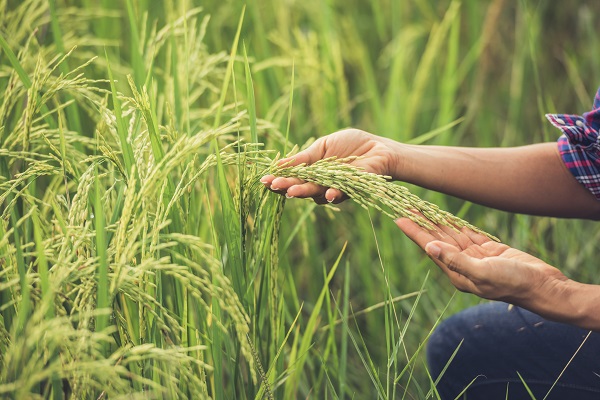
Natural Production:
This farming method follows natural ways to grow livestock and poultry in natural ways, not use of antibiotic, hormone medicine to grow them faster. The main feature of this farm is to use natural healthy ways. Organic crops are healthier than other farming produce crops. It less spreads weeds, diseases, etc.
Soil Management:
Organic farming methods are good for managing soil nutrients as for the production it does not use any type of chemicals. The way this method is natural so there isn’t any pollution of soil.
Care for Environment:
Not using unnatural ingredients or chemicals in this farming method; so takes care of the environment. It did not pollute the environment.
#Principles of Organic Farming:

Here are the four principles provide by IFOAM:
1. Principles of Health:
This farming helps improve and protect the health of the soil, plants, livestock, humans, and the whole world. Immunity, durability, and regeneration are important health characteristics. It helps to enhance organic farming, the climate, and animal welfare. In particular, it intended that high-quality nutritious food, as well as preventative health care and well-being, will help ensure. In this context, it is appropriate to avoid the use of harmful fertilizers, pesticides, animal-enhancing drugs, and unhealthy substances, etc.
2. Principles of Ecology:
Under environmental laws, this program controls organic farming. That said, production is focused on processes and recycling of the environment. Nutritional and beneficial development is accomplished through ecologically sound ecology. A living ecosystem and a loop is organic farming. It encourages the conservation of the atmosphere and biodiversity.
These cycles are universal, but they remain set in their acts. Organic management must adapt to local, ecological, and cultural conditions. Effective management should achieve through recycling, maintaining the number of materials and energy. And overall maintaining efficiency by enhancement and conservation of resources.
3. Principles of Honesty:
In relation to the general climate and life opportunities, organic farming develops or ensures integrity. Integrity in the relationship between man and other creatures defined by dignity, respect, justice, and world duty. Emphasis is placed on the principle that organic farming ensures an honest relationship between farmers, workers, processors, distributors, traders, and consumers at all levels.
Organic farming contributes to the quality of life and food security and the alleviation of hunger, which includes all people of good quality. It aims at producing food of good quality and a lot of food items.
4. Principles of Care:
In order to protect the health and well-being of present and future generations, organic farming will be practiced as a precautionary and responsible method. Organic farming is a living, complex system that responds to both internal and external requirements and circumstances.
Professionals in organic farming can increase quality and boost productivity, but they should not be used at the cost of sacrificing health and well-being. As a consequence, it is important to analyze emerging technology and study existing methods. A strong connection between ecology and agriculture must be used to understand it.
#Organic Farming Methods:
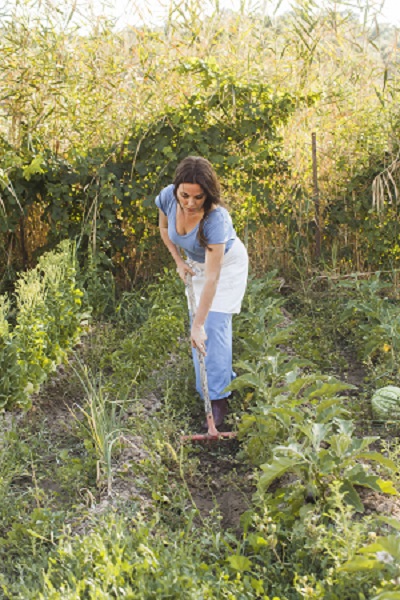
Before starting work on organic farming methods it is necessary to properly understand the rules and basic requirements of the area and it is essential to address the long-term strategy first. The cause of unhealthy soils in most parts of the country is the loss of organic matter and soil fine particles. Decreased water availability and rising temperatures cause more problems. Excessive dependence on the market for energy supply has increased the cost of agriculture and income has been steadily declining.
We need to be aware of all this and take a new approach that is not only productive but also low cost but can be saved and can be used for many years. Here are some organic farming methods:
A. Crop Variety:
At the first time, there is one type of crop was cultivate on the field and that location was a particular place. This one type of crop cultivation called monoculture. But at present time, the Polyculture takes place of the one crops cultivation and it helps to increase the foods demand.
B. Soil Management:
After one season of cultivation, the nutrients of the soil lose and become less quality. And most of the farmers use chemicals to produce more crops. The focus of organic agriculture is to cultivate crops in a natural way. Abandon the use of chemicals, use crop residues as mulch, use organic and organic fertilizers, adopt crop rotation and multiple crop adoption, avoid excessive tillage and cover the soil with green mulch or organic mulch.
C. Weed Managing:
Weed is the unwanted plant that grows in the field and it also harmful for the crops. The focused of this farming method is to removing these types of plants the methods of mulching, cutting and mowing.
D. Livestock:
Nothing is better to pet animals at the fresh air; besides collect green foods for them, and feed them. Everything will be perfect if we follow the natural ways in our cultivation. It reduce our time and labour when we plowing the domestic animals to increase the sustainability.
E. Controlling other Organisms:
Some types of organisms are beneficial for the farm and some of the harmful that destroy the crops. To protect soil and growth of the crops we need some organisms to reduce the flies.
F. Genetic Modification:
Genetic modification is far away from organic cultivation. This cultivation is away from the use of technologies and chemicals that harm crops, animals, soil, and human health.
#How is Organic Fertilizer Prepared?

The main source of this farming is organic fertilizer. This organic fertilizer compost can be made through some processing. The methods of processing organic manure used for organic farming are discussed below.
1. Grass cut:
Nitrogen is especially needed for the growth of the plant’s nutrients. You can make a pile by cutting the small grass growing next to the house by one to half an inch. The rotten part of this cut grass will help to produce huge amount of nitrogen.
2. Weed soaked water:
In addition to the small grass around the house, some large weeds can be seen. They have the ability to produce a lot of nitrogen. Cut the weeds and soak them in water in a large container for one to two weeks. When the color of the water turns reddish brown, spread it lightly on a mound of cut grass. Remember to keep the previously cut mound of grass in a medium tub.
3. Cattle waste:
Organic fertilizers are available from a variety of sources, including a large amount of nitrogen-containing nutrients from cattle waste to help plants grow. Large quantities of raw and high acid fertilizers are obtained from animal wastes such as cows, horses, chickens etc. However, high acidic fertilizers will provide more nutrients for your plants. That will have the potential to damage the tree. To overcome this problem, you can mix it with previously cut grass. This will make the mixed pulp suitable nitrogen supplying organic fertilizer.
4. Kitchen waste:
You can make your organic fertilizer by composting the leftover peel of vegetables used in the kitchen. Compost helps to retain soil moisture.
Let the waste discussed above be suitable for making decomposed manure for at least two months in a medium type tank. During this time the mixed waste will develop the ability to kill bacteria and weed seeds. The mixed waste will produce nutritious fungi at a temperature of 120 to 150 degrees which helps in providing adequate nutrition to the plant. Within two months the waste will turn into soil and earthworms will grow. Worms help to increase the fertility of fertilizers by mixing soil and manure.
#Benefits of Organic Farming:
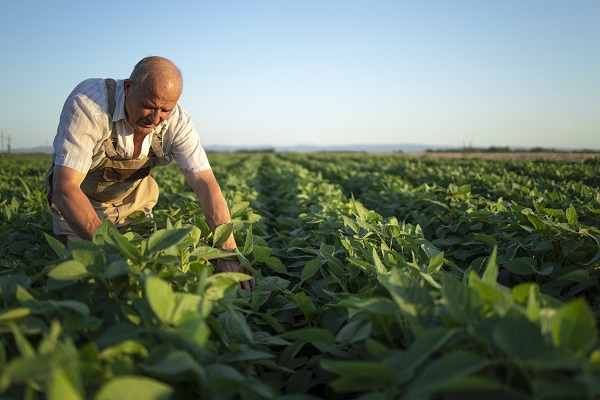
The benefits of organic farming may be less than what is said. It is a farming system where it is possible to produce more food grains by maintaining a healthy environment without harming the environment. The benefits of organic farming are discussed below.
A. Less costs:
As a result of organic farming the additional cost is less in agriculture. For example, the huge amount of pesticides and fertilizers used to grow trees, increase yields, and eradicate insects is generally costly to a low-income farmer. In this case organic fertilizer is readily available and production method is simple.
B. Produce a large amount of food grains:
The natural way of using pesticides is to prevent insect pollination. As a result, the yield of the plant is increased by artificially spraying hormones which is harmful to the human body. In this case, this farming does not use any pesticides, so it is possible to produce a large number of food grains through natural insect pollination. As well as maintaining the balance of the environment.
C. No harmful:
The use of more pesticides gradually reduces the quality of the soil. In addition, the surrounding water bodies are contaminated with pesticides for irrigation. But in the case of this farming, there is no such harmful possibility of using organic fertilizer. Naturally high chemical fertilizers and pesticides increase the growth of the crop but reduce the quality of the food grains produced which is harmful to the human body. But it is possible to get healthy food as a result of organic farming. As a result, people can get some relief from deadly diseases like cancer.
D. Better Nutrition:
It is very important to eat a healthy diet, including sufficient amounts of granular food, vegetables, and fruits every day, to fulfill the nutritional needs of our body. Yet in the name of food, we continue to eat poison every day, knowingly or unknowingly. Cadmium, arsenic, vegetables, fruits and other foods are combined at various stages of the product with different toxic pesticides and chemicals.
E. Helps us Stay Healthy:
Organic food helps us to stay healthy as it has antioxidant capacity and other nutrition ingredients. This poison free food processing method keeps us healthy and wealthy and leads better lifestyle.
F. Free of Poison:
Today, the food produced in the petroleum-based farming system has become a major cause of various diseases and deaths. To meet the nutritional needs of our body, it is very important to eat a balanced diet including sufficient amount of granular food, vegetables and fruits every day. But we continue to consume poison every day in the name of food, knowingly or unknowingly. For not using of fertilizers and poisonous chemicals in this farming method, the producing crops are free of poison. Intake of organic food gives the surety to lead of healthy life.
G. Organic Foods Are Highly Authenticated:
Quality checks must be performed in order for any products to meet the requirements as organic food. It carried out and rigorously investigated the production process and the same law protects international markets. For customers, because they have real organic food, this is a major success. Such quality controls and experiments root out quacks who desire to profit from the organic food mark by providing industrial goods instead.
H. Enhanced Taste:
Food quality is also determined by its flavour. Sometimes, organic food tastes better than other foods. The sugar content of organically grown vegetables and fruits adds extra flavour to them. Using Brix analysis, the consistency of fruits and vegetables can be measured.
I. These Farming Methods are Eco-friendly:
Organic farming is essential to maintain soil fertility and productivity, to reduce the effects of pesticides, to preserve the environment, and make it suitable for future generations. The organic farming method uses organic fertilizers instead of chemical fertilizers. It uses to prevent environmental contamination by pesticides and preserve a safe living environment and to maintain soil quality. All in all, we need environmentally friendly agriculture to survive in a clean world.
#Issues Of Organic Farming:
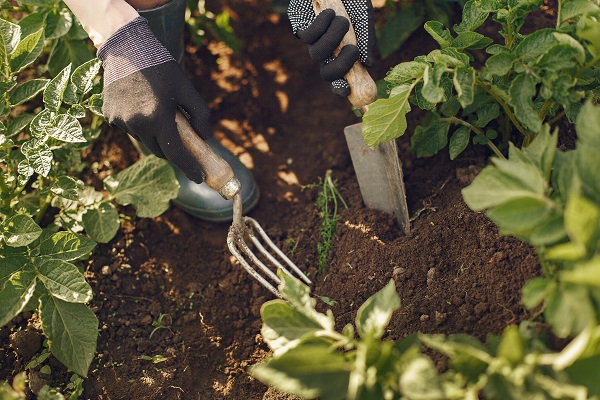
1. Environmental impact and emissions:
Oxford University researchers reviews various studies that sometimes the products of organic are most horrible for the environment. Most studies said that organic olives and beef had lower emissions of greenhouse gas and required less power, but more land. Critics of organic farming practices argue that rainforests will eventually be ruined and many habitats wiped out by the increased land necessary to farm organic food.
2. Nutrient leaching:
According to studies ammonia emissions, nitrogen leaching, eutrophication potential, nitrous oxide emissions etc. are higher for this product. Overload nutrients can reason of eutrophication, algal blooms, and ensuing dead zones in rivers, lakes, and groundwater. Furthermore, nitrates themselves are toxic to marine species.
3. Land use:
This farming method takes more land for harvesting animals and crops. From the other farming method it uses more land than produce less production. A research says that the production of animal in this process is not good for the environment as organic chicken and pork cultivation takes more land.
4. Pesticides:
Synthetic pesticide is strictly forbidden in this farming method. If any chemical product does not exist in the natural world then it named as synthetic. However, if created through chemical synthesis, the organic label goes further and typically excludes compounds that occur in nature. The prohibition also deals with the method of production, not just the nature of the compound itself.
5. Food quality and safety:
Although there are some variations in the quantities of nutrients and anti-nutrients. When we comparing organically grown foods with conventionally produced foods. It is difficult to generalize findings because of the variable nature of food processing and handling. There is insufficient evidence to say that organic foods are better or healthier than conventional foods. Allegations that organic food tastes better are not backed by evidence.
6. Soil conservation:
The supporters of organic cultivation argue that organically maintained soiled has immense retention of water and quality. That helps to improve yield for long years and it can build up the soil faster than traditional farming and modern farming. But opposed various studies claims, for yield and soil fertility conventional method is the best. And it is much beneficial from organic farming.
7. Opposition to labor standards:
Organic farming judged as more socially egalitarian and economically viable than traditional farming for farmworkers. There is, however, no study or consensus in social science as to whether or not organic agriculture offers better working conditions than traditional agriculture. Due to its dependence on manual practices for fertilization and pest removal, organic agriculture is typically more labor-intensive and relies heavily on employed, non-family farm workers rather than family members. While synthetic input diseases pose less risk, hired workers are still victims of weakening musculoskeletal disorders linked to agricultural work.
#Use of Organic Farming in India:
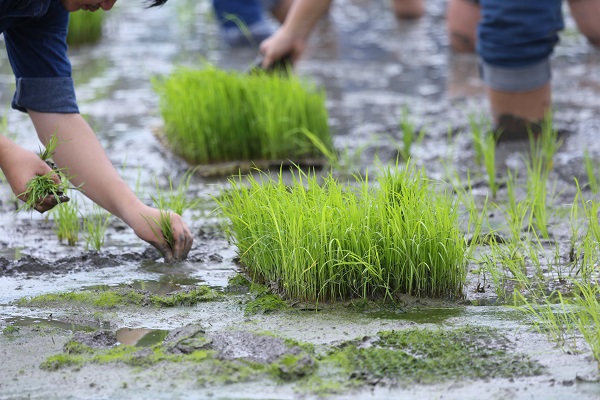
“India is a land of agriculture”, the word we have heard more than once in life. But we never realize the hard work and purpose behind it. Organic farming in India has brought another dimension. Developed India has now shifted its focus from traditional farming to organic farming. According to 2018 FIBL data, India ranks 33rd in the world in terms of this farming method.
Since this farming maintains ecological balance in a healthy way without affecting the environment, its prevalence has increased in different parts of India. India has a huge potential in organic farming. At present organic farming found in most of the total agricultural land. Organic farming in India covers a total of 1.2 million hectares of land from which 1.30 million hectares of organic food grains produce.
Evidence of how far India is ahead in organic farming in India can be seen in Madhya Pradesh. The most organic farming in India presents here. The Government Schemes in Agriculture For Farmers develop this farming practice. Apart from this, Maharashtra, Orissa, Uttarakhand, and Sikkim recognized as organic states.
Organic farming in India has benefited many farming classes. Various small and medium-sized farming classes are hoping for huge profits through this farming. At present, the production of organic spices, basmati rice, herbs, etc. has increased in India. At the same time, by exporting them to foreign markets, India is ahead of other countries economically.
#Why is there so much interest in organic food?

The food produced in the petroleum-based farming system, which started in the last century has become a major cause of various diseases and deaths. To meet the nutritional needs of our body, it is very important to eat a balanced diet including an adequate amount of granular food, vegetables, and fruits every day. But we continue to consume poison every day in the name of food, knowingly or unknowingly.
Cadmium, arsenic, vegetables, fruits, and other foods mixed with various toxic pesticides and chemicals at different stages from production to marketing. Toxic pesticides, spider mites, fungicides, herbicides, etc. applied in stages to produce other crops and fruits including high-yielding hybrids and GM vegetables of modern varieties.
In the context of India, selling vegetables in the market immediately after excessive application of chemicals is a daily occurrence. So, these are entering our bodies with food. Again, various toxins including carbide are using to preserve and ripen these vegetables and fruits for a long time. Toxic formalin used to preserve fish. Various toxic dyes added to vegetables and fruits to attract buyers. By eating these fruits, on the one hand, various diseases are appearing in our body, on the other hand, vitality and longevity are also decreasing.
Conclusion:
The whole world particularly attracted to this farming for the sake of human health. It is possible to do small, large, medium, etc organic farming for the purpose of providing a balanced diet to future generations of people. In the personal case, it is possible to make it smaller next to your own home. Hopefully, you will get enough information about the details to discuss above.
